Can a Bad Mattress Cause Inflammation?
If you've ever woken up with aches and pains, you may have blamed it on a bad night's sleep. But have you ever considered that your mattress could be the cause of your discomfort? Many people overlook the importance of a good mattress when it comes to their health, but the truth is, your mattress could be contributing to inflammation in your body.
10 Surprising Ways Your Mattress Affects Your Health
While most people know that a good mattress can lead to better sleep, many are unaware of the other ways their mattress can impact their health. Here are 10 surprising ways your mattress could be affecting your well-being:
1. Inflammation: A bad mattress can cause inflammation in the body, leading to aches and pains.
2. Back Pain: A poor quality mattress can cause or worsen back pain, making it difficult to get a good night's rest.
3. Allergies: Dust mites and other allergens can accumulate in older mattresses, causing allergies and respiratory issues.
4. Chronic Pain: A bad mattress can lead to chronic pain, making it difficult to carry out daily activities.
5. Poor Posture: An unsupportive mattress can cause poor posture, leading to muscle and joint pain.
6. Insomnia: An uncomfortable mattress can make it difficult to fall asleep and stay asleep, leading to insomnia.
7. Stress: Lack of quality sleep due to a bad mattress can lead to increased stress levels and a negative impact on mental health.
8. Poor Immune System: Sleep is essential for a strong immune system, and a bad mattress can disrupt your sleep, making you more susceptible to illness.
9. Poor Digestion: A lack of quality sleep can affect digestion and lead to issues like acid reflux and heartburn.
10. Decreased Productivity: Lack of quality sleep due to an uncomfortable mattress can lead to decreased productivity and energy levels throughout the day.
How Your Mattress Could Be Causing Inflammation
So, how exactly can a bad mattress cause inflammation in the body? One of the main ways is through poor support. A mattress that is too soft or too firm can cause pressure points in the body, leading to discomfort and pain. This can disrupt your sleep, causing you to toss and turn throughout the night and wake up feeling sore and stiff.
Inflammation can also be caused by a build-up of allergens in your mattress. Over time, dust mites, dead skin cells, and other irritants can accumulate in your mattress, triggering allergies and respiratory issues. This can lead to inflammation in the body, making it difficult to breathe and sleep comfortably.
Is Your Mattress Causing Your Back Pain?
If you suffer from back pain, your mattress could be the culprit. A bad mattress can cause or worsen back pain by not providing proper support for your spine. This can lead to aches and pains in the back, making it difficult to get a good night's rest. Over time, this can lead to chronic back pain and discomfort.
To determine if your mattress is causing your back pain, pay attention to how you feel when you wake up in the morning. If you feel stiff and sore, it may be time to consider investing in a new mattress.
How Your Mattress Can Affect Your Allergies
If you suffer from allergies, your mattress could be making your symptoms worse. As mentioned before, dust mites and other allergens can accumulate in your mattress, triggering allergies and respiratory issues. This can lead to inflammation in the body, making it difficult to breathe and sleep comfortably.
To combat this, it's important to regularly clean and replace your mattress. This can help reduce the build-up of allergens and improve your overall health and comfort.
Can a Bad Mattress Lead to Chronic Pain?
Chronic pain is a common issue that many people struggle with, and your mattress could be contributing to it. A bad mattress can cause aches and pains throughout the body, leading to chronic pain and discomfort. This can make it difficult to carry out daily activities and lead to a decrease in quality of life.
If you suffer from chronic pain, it may be worth considering investing in a new mattress that provides proper support and comfort for your body.
The Connection Between Mattress Quality and Inflammation
The quality of your mattress plays a significant role in your overall health and well-being. A good mattress should provide proper support for your body, promote healthy sleeping positions, and be free of allergens and other irritants. If your mattress lacks these qualities, it's likely that it could be causing inflammation in your body.
Investing in a high-quality mattress can not only improve your sleep but also reduce inflammation and promote overall health and wellness.
Signs Your Mattress is Causing Inflammation
So, how do you know if your mattress is causing inflammation in your body? Here are some signs to look out for:
1. Waking up with aches and pains: If you consistently wake up with aches and pains, it could be a sign that your mattress is not providing proper support for your body.
2. Allergies and respiratory issues: If you suffer from allergies or respiratory issues, your mattress could be contributing to your symptoms.
3. Chronic pain: If you experience chronic pain, your mattress could be making it worse.
4. Difficulty falling and staying asleep: If you have trouble falling and staying asleep, your mattress could be causing discomfort and disrupting your sleep cycle.
If you notice any of these signs, it may be time to consider investing in a new mattress to improve your overall health and well-being.
How to Choose the Right Mattress for Inflammation Relief
If you're in the market for a new mattress, there are a few things to consider when it comes to choosing the right one for inflammation relief:
1. Support: Look for a mattress that provides proper support for your body, particularly in areas such as the lower back and neck.
2. Comfort: Find a mattress that is comfortable for you, whether that be a firm or soft mattress.
3. Allergen-free: Look for mattresses that are hypoallergenic and have features such as dust mite resistant covers.
4. Try before you buy: It's essential to test out a mattress before making a purchase to ensure it is the right fit for your body and sleeping preferences.
5. Consider your sleeping position: Certain mattresses are better suited for different sleeping positions, so consider how you sleep when choosing a mattress.
Improving Your Sleep to Reduce Inflammation
Aside from investing in a high-quality mattress, there are other ways to improve your sleep and reduce inflammation in your body:
1. Create a sleep-friendly environment: Your bedroom should be cool, dark, and quiet to promote a good night's sleep.
2. Practice good sleep hygiene: This includes going to bed and waking up at the same time each day, avoiding screens before bed, and creating a relaxing bedtime routine.
3. Exercise regularly: Regular physical activity can help improve sleep quality and reduce inflammation in the body.
4. Eat a healthy diet: Certain foods can promote inflammation in the body, so it's essential to maintain a healthy and balanced diet to reduce inflammation.
5. Manage stress: Stress can disrupt sleep and increase inflammation in the body, so finding ways to manage stress is crucial for improving sleep and overall health.
By following these tips and investing in a good mattress, you can improve your sleep and reduce inflammation in your body, leading to better health and well-being. Don't overlook the importance of a good mattress and take steps towards better sleep today.
The Importance of Quality Sleep

How a Bad Mattress Can Cause Inflammation
 A good mattress is essential for a good night's sleep, but did you know that a bad mattress could be causing more harm than just discomfort? When we sleep, our bodies go through a healing and rejuvenating process, repairing any damage and reducing inflammation in our muscles and tissues. However, a bad mattress can disrupt this process and lead to chronic inflammation, which can have serious implications for our health.
Inflammation
is the body's natural response to injury or infection. It is essential for healing, but when it becomes chronic, it can lead to a host of health problems, including
cardiovascular disease, diabetes, and arthritis
. Chronic inflammation is also linked to
poor sleep quality
and can be exacerbated by a bad mattress.
When we sleep on a bad mattress, we are more likely to experience pain and discomfort, which can lead to tossing and turning throughout the night. This constant movement can put stress on our joints and muscles, leading to micro-tears in tissues and causing inflammation. Over time, this can result in chronic inflammation, which can affect our overall health and well-being.
Not only does a bad mattress disrupt the healing process during sleep, but it can also affect our
cortisol levels
. Cortisol is a hormone that helps regulate inflammation in the body. When we are sleep-deprived, our cortisol levels can increase, leading to higher levels of inflammation. This can also contribute to weight gain, high blood pressure, and other health problems.
In addition, a bad mattress can also affect our
posture
and
spinal alignment
, which can lead to chronic inflammation in our muscles and joints. When our spine is not properly supported, it can put pressure on certain areas of the body, leading to pain and inflammation. This can also disrupt our sleep, leading to a vicious cycle of poor sleep, chronic inflammation, and more pain.
In conclusion, a bad mattress can have serious consequences for our health, including chronic inflammation. Investing in a good quality mattress that provides proper support and comfort is crucial for maintaining a healthy and inflammation-free body. So, if you find yourself waking up with aches and pains, it may be time to consider replacing your mattress for the sake of your health.
A good mattress is essential for a good night's sleep, but did you know that a bad mattress could be causing more harm than just discomfort? When we sleep, our bodies go through a healing and rejuvenating process, repairing any damage and reducing inflammation in our muscles and tissues. However, a bad mattress can disrupt this process and lead to chronic inflammation, which can have serious implications for our health.
Inflammation
is the body's natural response to injury or infection. It is essential for healing, but when it becomes chronic, it can lead to a host of health problems, including
cardiovascular disease, diabetes, and arthritis
. Chronic inflammation is also linked to
poor sleep quality
and can be exacerbated by a bad mattress.
When we sleep on a bad mattress, we are more likely to experience pain and discomfort, which can lead to tossing and turning throughout the night. This constant movement can put stress on our joints and muscles, leading to micro-tears in tissues and causing inflammation. Over time, this can result in chronic inflammation, which can affect our overall health and well-being.
Not only does a bad mattress disrupt the healing process during sleep, but it can also affect our
cortisol levels
. Cortisol is a hormone that helps regulate inflammation in the body. When we are sleep-deprived, our cortisol levels can increase, leading to higher levels of inflammation. This can also contribute to weight gain, high blood pressure, and other health problems.
In addition, a bad mattress can also affect our
posture
and
spinal alignment
, which can lead to chronic inflammation in our muscles and joints. When our spine is not properly supported, it can put pressure on certain areas of the body, leading to pain and inflammation. This can also disrupt our sleep, leading to a vicious cycle of poor sleep, chronic inflammation, and more pain.
In conclusion, a bad mattress can have serious consequences for our health, including chronic inflammation. Investing in a good quality mattress that provides proper support and comfort is crucial for maintaining a healthy and inflammation-free body. So, if you find yourself waking up with aches and pains, it may be time to consider replacing your mattress for the sake of your health.


































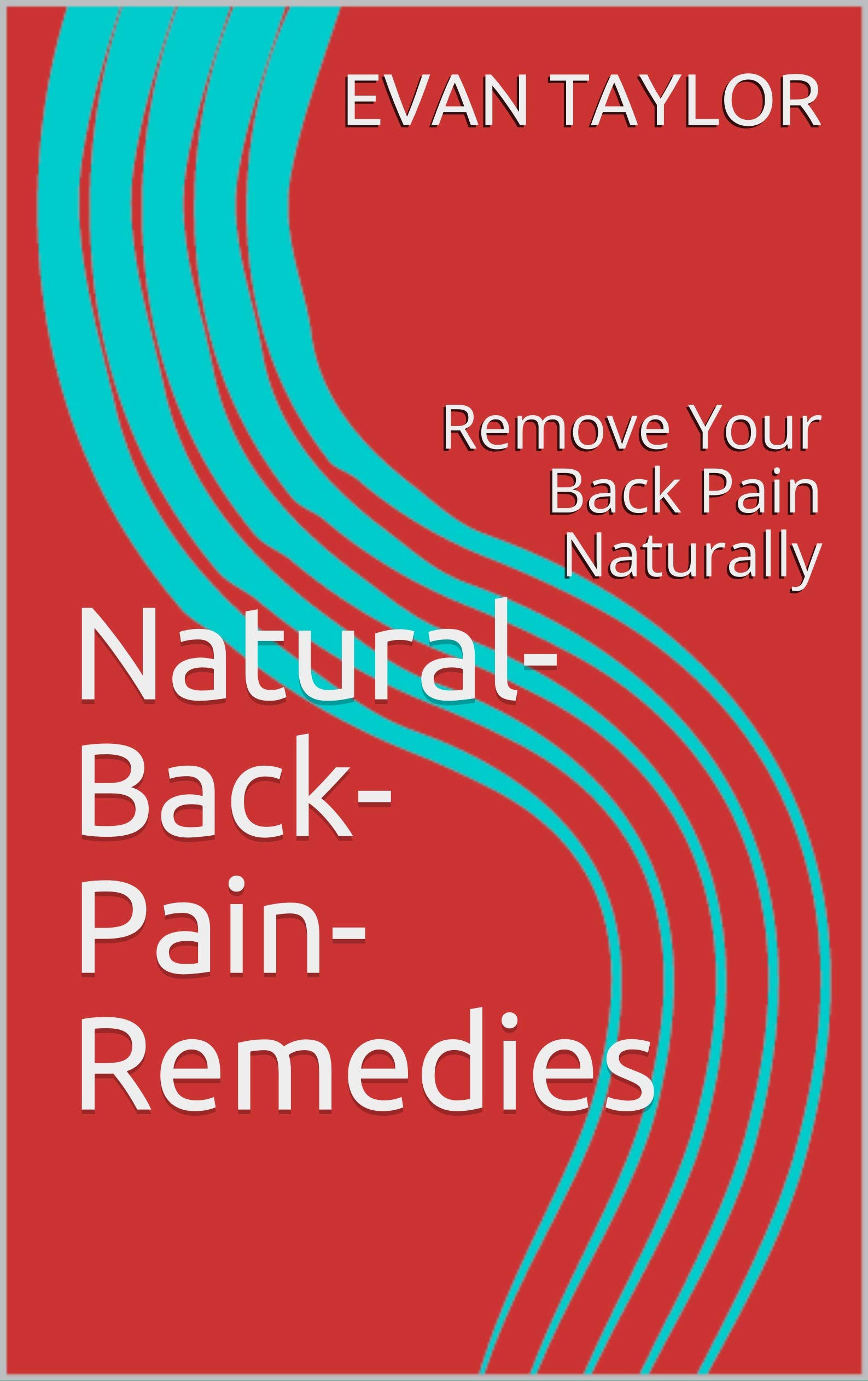









































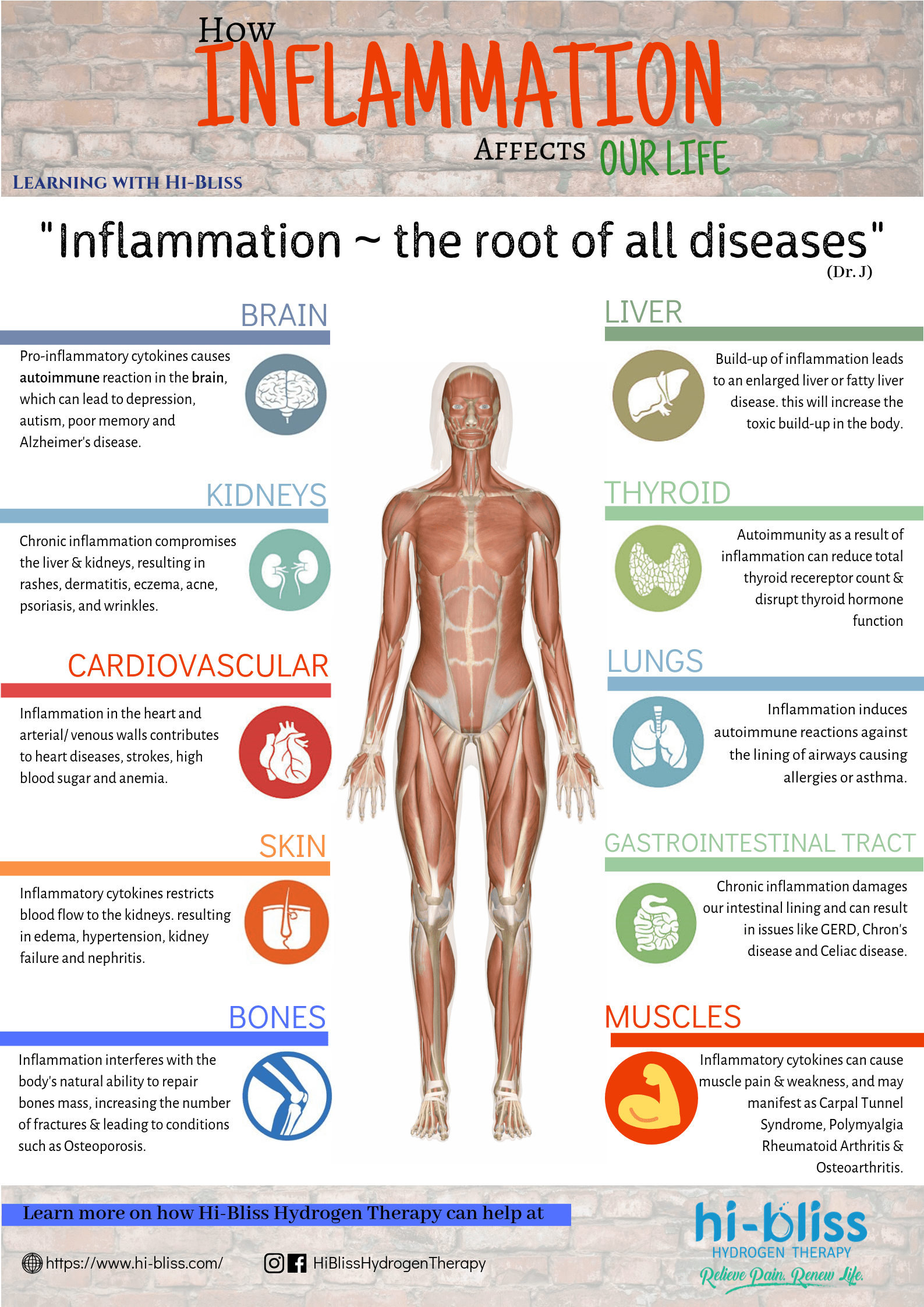





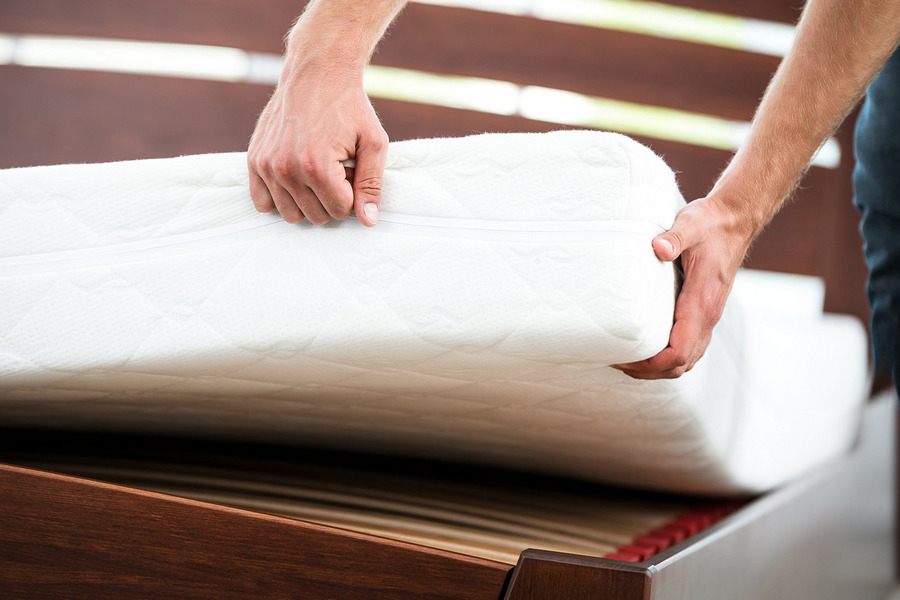









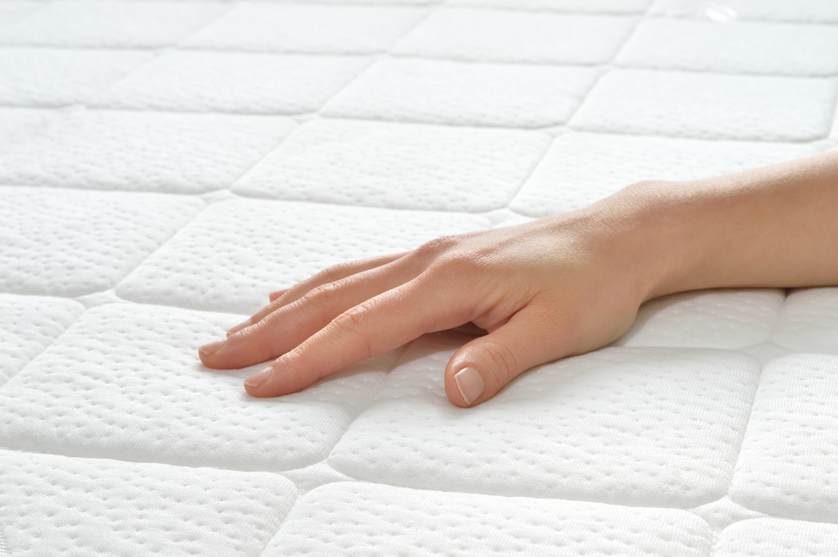








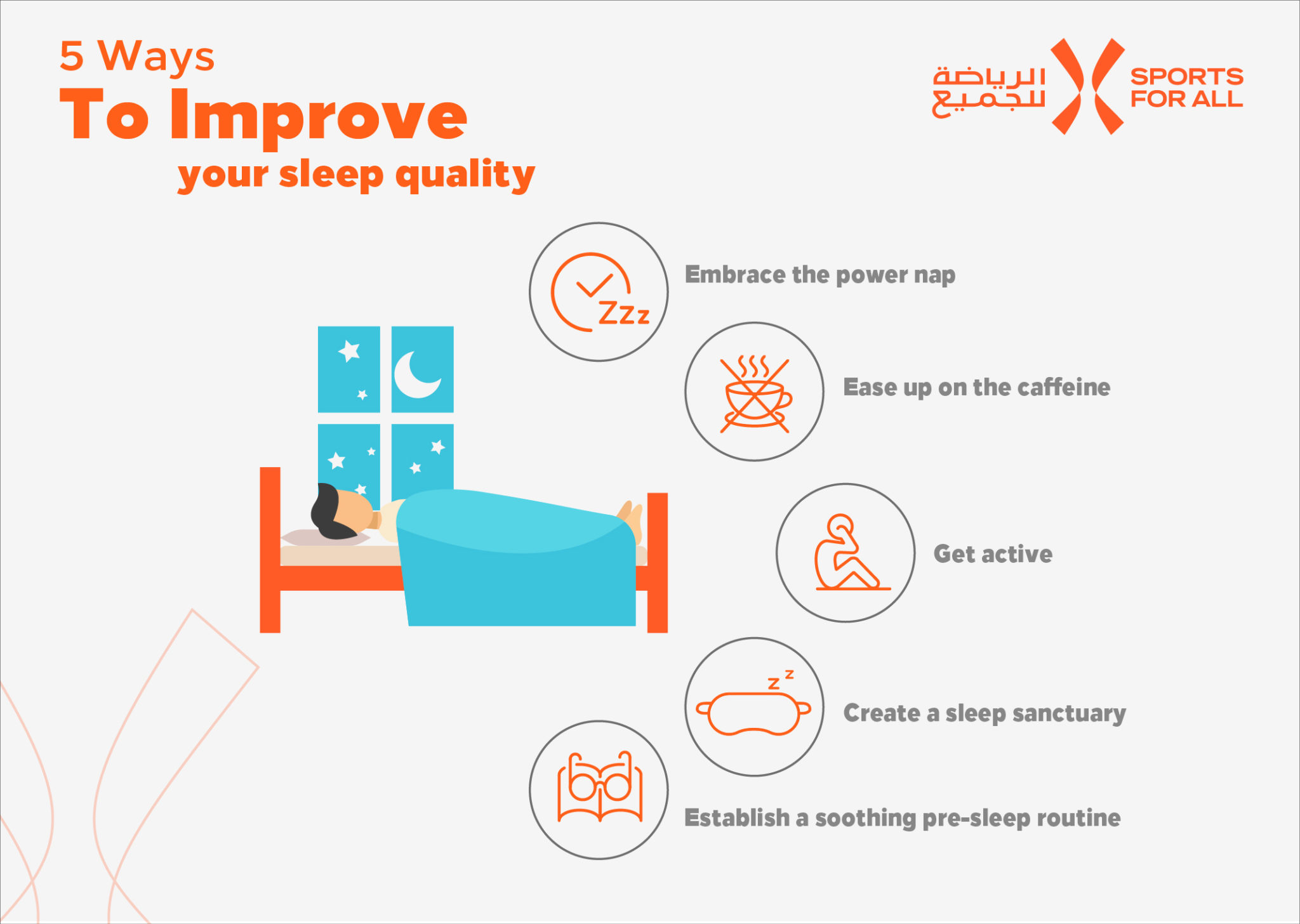
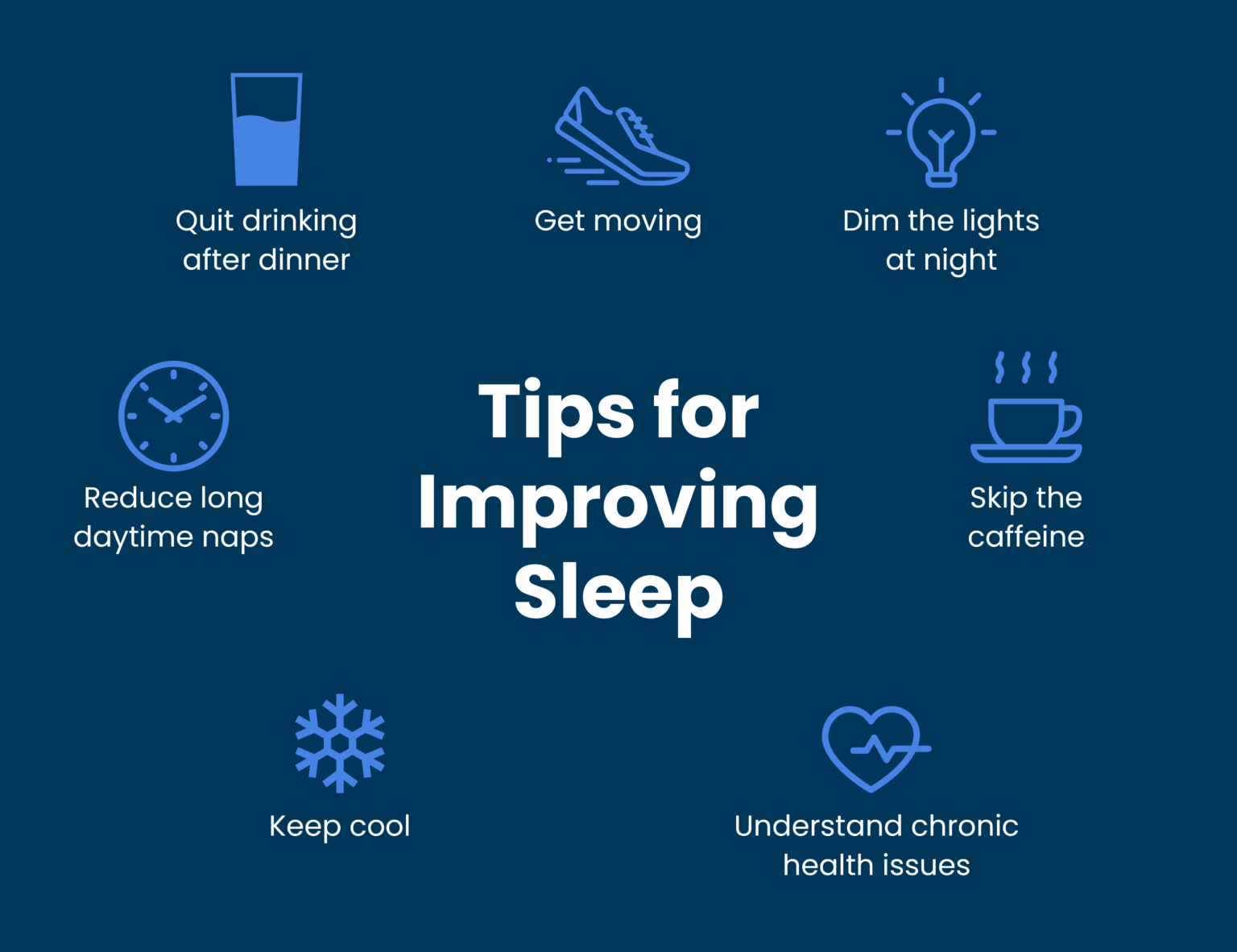
:max_bytes(150000):strip_icc()/how-to-get-better-sleep-5094084-regular-FINAL-2c371001cada4ad391f6de53fc6053c9.png)











